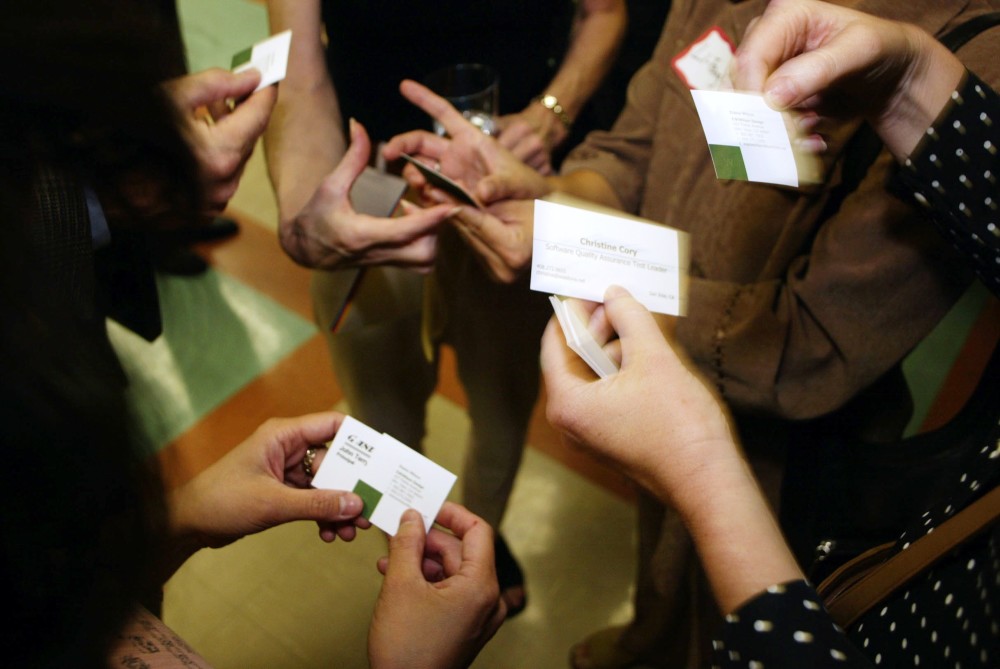By Joe Garofoli
San Francisco Chronicle.
Angel investor money is pouring into Silicon Valley, but only a sliver of that wealth is going to women-owned and African American owned startups.
Investors and entrepreneurs say it’s not overt racism or sexism that’s behind the disparity. Instead, they say, the cause is rooted in the nation’s wealth gap, which is manifested in the who-you-know, where-you-went-to-school culture of the business world.
And right now, they say there aren’t enough bridges between the valley’s deep pockets and young companies led by women, African Americans or Latinos.
“The challenge has been trying to get in front of people,” said Ofo Ezeugwu, the 22 year-old African American CEO of Whose Your Landlord, which lets college students rate campus housing options and allows landlords to post directly to students. “If you give me the opportunity to get in front of someone, I’ll shine.”
This week, the National Minority Angel Network tried to build some bridges when it invited six young firms led by women or African Americans, including Ezeugwu’s, to pitch their business to more than 20 angel investors and a half-dozen venture capitalists at the Tech Lab Innovation Center in Santa Clara.
Speed pitches
The chosen companies made a 10-minute pitch, then spent twice that fielding pointed questions about their businesses. (What will your revenue stream be in five years? Isn’t somebody else doing that same thing?)
And there was plenty of time for one-on-one business-card swapping.
“This is a start, about making introductions,” said Minority Angel Network founder Tim Reese. “These (entrepreneurs) have the ideas. But what they don’t know is, ‘Who do I talk to?’ ”
The result of that disconnect: Less than 5 percent of venture capital shelled out nationally in 2013 went to women-led businesses and 1 percent went to minority-run firms.
“As investors, you tend to look for patterns, as one way to predict the future is to look at the past,” said Marlon Nichols, an equity investor at Intel Capital who is African American. “You go with who you know. And the chances of me knowing someone who is an African American entrepreneur with a great idea are probably better than somebody else’s.”
However, Nichols told the gathering entrepreneurs “have to stand outside of your comfort zone. If I don’t know someone who knows you and can vouch for you — no matter how smart I think you are — it’s going to be hard for me to take that extra step and make that investment.”
Another challenge, particularly for entrepreneurs who did not grow up in wealthy families, is raising money during early “friends and family” rounds of investing.
Modest means
“We can’t just talk to our friends and family because that’s not where the venture capital is,” George Scott, an African American attorney who works on venture capital and private-equity deals, told the group.
Ezeugwu, who lives in Brooklyn, N.Y., understands that “there’s a certain profile” of entrepreneurs that investors know. “So you go with what you’ve seen before. That’s human nature.”
He got the idea for his business during a late-night conversation while he was a junior at Temple University.
“What if students could rate their landlords? It would hold them accountable,” Ezeugwu said.
Within two years of that conversation, Ezeugwu and a team of five had raised $30,000 to transform their idea into a reality. (On its website, the company says it purposefully uses “Whose” instead of “Who’s” “because we are now returning the ownership back to the tenants.”)
High expectations
This week, Ezeugwu was hoping to leave the valley with $2 million in new investment. Investors applauded his passion and drive.
But as longtime Garage Technology Ventures Managing Director Henry Wong said, “It doesn’t happen like that. It takes a while to build a marriage.”
“No girl is going to marry you in 5 minutes,” he said. “This is just the start.”














































































































































































































































































































































































